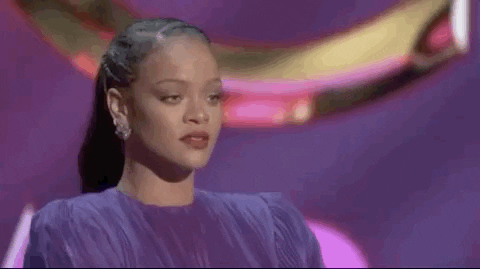2021-2022 COOP study group ~ A Blues For Essential Workers
Tutor team:
curatorial team sonsbeek20->24
(Antonia Alampi, Amal Alhaag, Zippora Elders, Krista Jantowski, Aude Christel Mgba, and Bonaventure Soh Bejeng Ndikung)
Other guests:
Partner:
Student participants:
Derek Di Fabio, Jan Pieter ‘t Hart, Till Langschied, Vera Mühlebach, Ros del Olmo, Emmeli Person, Alexandra Martens Serrano, Ronja Sommer, Marika Vandekraats.
Student led reflection:
Program:
Introduction to the program:
Which Side Are You On? A question that is slowly unfolding over a hundred year period of time, written in 1931 by union organiser and non-musician Florence Reece to address the societal inequalities that fueled this labour anthem in the US. Fast forward to 2021, this pandemic has exposed the existing wounds and persisting societal inequalities that are cemented into every fiber of the Netherlands and fortress Europe. Wounds that have grown on top of colonial scars, nostalgia and global capitalism’s traumas. We wonder what wounds the pandemic produced, and we immediately think of the notion and questions of essential labour.
Paradoxically, those who have been named essential - the frontline workers of all kinds including nurses, emergency workers, bus drivers - still happen to be some of the least remunerated workers in our societies. How does their essentiality translate into their financial appreciation? How can they be essential just for the work they do for society, but society doesn’t give them the essential remuneration they deserve. In the beginning of the pandemic, when people stood on the balconies and clapped for the so-called essential workers as a sign of appreciation, it was offering a balm on the souls of these workers. But it is not with these kinds of consolations, not through claps or the hitting of pots that they pay their rents, pay the fees of their children, buy their medications, pay their insurances or go on vacation. Essential work demands essential pay.
With this COOP, we envision what it means to show up for workers of all kinds - recognised or not recognised work, visible or invisible labour, blue or white collar jobs, and people of all walks of life - and to demonstrate for the essentiality of their work. With demonstration we intend to think from the root of the word, from its Latin etymological bearing demonstratus, and its past participle of demonstrare that signifies to point out or to indicate something. Maybe this brings us to the colloquial French notion for demonstration - manifestation - which implies the possibility of an action that discloses something that is secret, obscure or unseen.
Together with participants of the COOP as fellow conversationalists, collaborators and hosts, our COOP will develop over the course of one year a series of public (sonic) actions that always engage different set of community members, audiences, organisers etc and take the shape of a public broadcasting, assemblies, walks, performances and demonstrations. We invite students to develop a research action plan that is rooted in bell hook’s notion of theorisation, which is an invitation to move away from research as hyper-individualistic endeavour and to move towards a vocal, collective, organised konfusion, storytelling-based programs that invite, provoke and instigate.
Participants are asked to deepen their commitment to the COOP format by engaging with and organising around ideas, thoughtful actions and caring practices where the notion of publicness and publics as collaborators, critics and audience is crucial. Usually presented as a general, outward and highly visible gesture, the COOP tries to add to ‘publicness’ the quiet and intimate, the invisibilised and the mundane. In this process of articulating, narrating, inviting, preparing, producing and distributing the aim is to establish connections that not only engages publics into the space of each DAI week, but it mostly proposes possibilities to think together with local networks and to conjure up ideas and actions within the ‘also-space’, by way of supportive work and questioning how to show up for each other. Here, we move beyond the notion of public art as occupying public space and act within a process of publicness that revolves around notions of hosting and being hosted, engagement and mundanity, as well as invisibilized work, ritualized work and reproductive labour.
Each DAI week, the COOP works within a public gesture. Central to our methodology is the use of radio, but public gestures can also include public assembly, a concert or a communal dinner. To work within this commitment, there is an emphasis on work done before the DAI week commences. Participants are asked to focus on working within a certain location and its networks at a distance and to come to a DAI week prepared.
Participants are asked to negotiate between their role as artists, as curators, researchers and their roles as producers, hosts and broadcasters.
What we will be doing:
Dialogic situations that foster a relationship with audiences, community members, activists, artists, networks outside of the confinement of the educational institution.
Public program as a tool to facilitate the myriad of unheard stories and hardly visible professions that make things be but are rarely represented and the ones that have been rigorously and malevolently erased from collective history. To provide space for listening to experiences of the labour force that erects and builds, that serves and provides, that protects and cares, however merely – if at all - acts as a support or minor role in most representations. It aims to invoke, evoke, provoke new thoughts, ideas and perceptions, engage with an expanded and augmented musicality that invites and encourages different modes of listening, that want to make visible which is already there but remains unseen and unheard, that recover, restitute and repair the still segregative conditions under which we live, between visible and invisible workers, bodies and lands.

